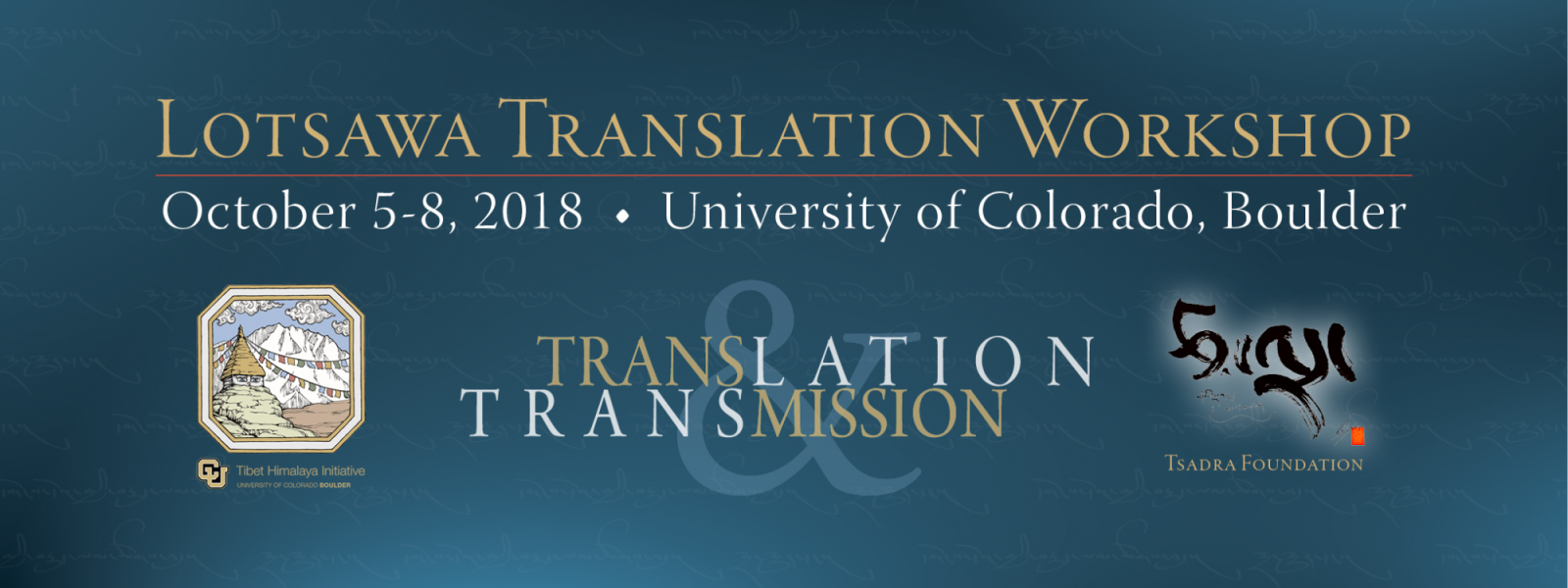Theme & Format
The Lotsawa Translation Workshop will begin the evening of Friday, October 5th with a welcome reception and the first keynote and will conclude with a half day wrap-up on Monday, October 8th. This will allow for an immersive experience and sustained dialogue around translation with respect to the chosen genre and theme: Tibetan songs (mgur) and affect in a Buddhist devotional framework.
Workshop Format
Modeled on the Bread Loaf Translators' Conference at Middlebury, the format combines lectures, panels, and break-out sessions in the mornings and dedicates the afternoons to working on translations-in-progress in small groups of 6-8. The small groups will include 4 workshop participants who have applied with proposed translations and 2-3 presenters and workshop hosts who will provide feedback. Each participant will have a 1.5 hour session dedicated to their translation-in-progress. Evenings will have optional activities, including a pre-conference lecture, welcome reception, and translation slam.
Translations by participants should be submitted in advance and, after workshopping and revision, will be selected for compilation into an edited volume, to which presenters and workshop hosts are also welcome to contribute. We are open to proposed translations in various styles of verse that relate to the dynamics of devotion and the associated range of emotions. Central to our discussion on the translations-in-progress will be how to convey the literary style, tone, and emotional tenor of Tibetan verse.
Goals
The Lotsawa Translation Workshop is designed to provide an opportunity for translators and scholars at various stages in their careers to work together in a hands-on workshop setting on translations-in-progress. The goals of the Lotsawa Translation Workshop are:
- to connect theory and practice in crafting literary translations of Buddhist literature from Tibetan into English;
- to forge a community of practice around translation through experimentation, dialogue, and feedback;
- to make short Buddhist works of Tibetan literature available to practitioners, undergraduates, and the general public through publishing thematic anthologies of translations.



